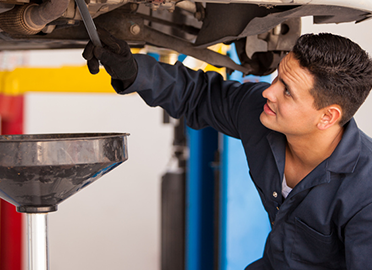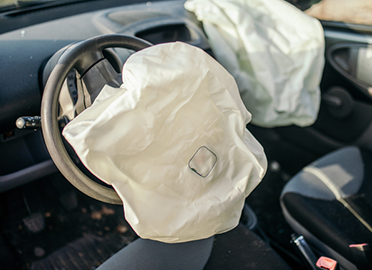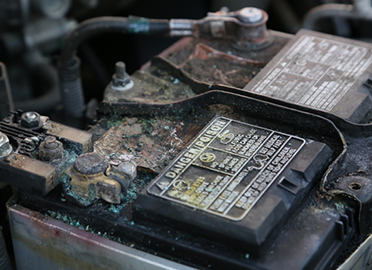Automotive Waste
Automotive dealers, repair shops, and body shops all generate large quantities of materials that are regulated or considered to be hazardous waste.These materials consist of liquid wastes like waste fuel, used motor oil, lubricants, antifreeze, brake fluid, and transmission fluid. Additionally, batteries, airbag actuators, filters, grinding dust and other materials may be regulated and must be handled and disposed of properly.
Waste Types

Liquid Wastes
Liquid automotive wastes such as waste fuel, used motor oil, antifreeze, brake fluid, or transmission fluid can be used as an alternative fuel in cement kilns and industrial waste-to-energy plants. These wastes must be characterized and transported either in UN-listed drums or by bulk transport.

Airbag Actuators and Seat-Belt Tensioners
The safety systems, including airbags, seatbelt tensioners, and other devices, often contain materials that are considered regulated or hazardous materials. They may contain small explosives that make them dangerous if not handled, transported, and disposed of properly.

Used Batteries
Whether a lead-acid battery from a conventional internal combustion engine, or a lithium-ion battery from an electric vehicle, batteries are considered hazardous or regulated waste items. Because lead-acid batteries contain liquid acid, they are particularly dangerous if not handled, packed, and shipped properly
Let’s Get Started
+1 (608) 352-4465
Call or click now to get a quick quote for your hazardous waste removal or hazardous materials treatment and disposal needs.
Our friendly, helpful, land knowledgeable agents are available now to customize your solution.